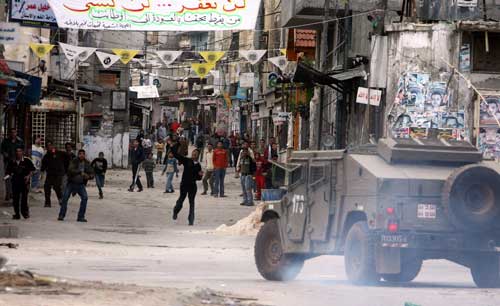
Ethnic conflict and religious tolerance: Media in the dock
VENICE-- The tranquil island of San Servolo, resembling both a university campus and an isolated fortress in the water-logged city of Venice, was the venue last week of a seminar on the role of the media in covering two politically sensitive issues: ethnic conflicts and religious tolerance. When a Danish newspaper ran cartoons offending the religious sensibilities of Muslims last year, the resulting uproar sparked riots in cities outside Copenhagen and triggered a political crisis in the Danish capital. Martii Ahtisaari, a former president of Finland, citing the Danish crisis, said the rules of inter-cultural communication are in desperate need of a new common language of global responsibility. "Sensational reporting that degrades the human person or dignity must at all times be avoided," he argued. And that rule also applies to politics, culture and religion. Dr. Muhammad Nurayn Ashafa, joint executive director of the Interfaith Mediation Centre in Nigeria, blames the media and the movie industry for their "insensitivity" to religious and cultural values in reporting and documenting events. At a recent General Assembly meeting on inter-religious and inter-cultural understanding, he quoted a Jewish rabbi as having said: "The media should strive to broadcast a balanced view of all cultures by tackling stereotypes and prejudice, and promoting tolerance and mutual understanding," according to one of the guiding documents of the Alliance of Civilisations. But does it? The media have been accused by some of being responsible -- either wittingly or unwittingly -- for instigating or provoking religious or ethnic tensions in areas of conflict or making preemptive judgments. When the Oklahoma City bombing took place in the United States in August 1995 -- long before the terror attacks in New York in September 2001 -- the initial press reports and stories that hit the wire attributed the bombing to "Middle East terrorist groups". That bombing was actually carried out by a homegrown anti-government militia inside the United States. Perhaps in an attempt to beat competitors, the wire services also rushed to judgment in more subtle ways. After a bombing in Europe a couple of years ago, one of the wire service stories read: "A voice in broken English -- and with an Arabic accent -- claimed responsibility for the bombing." A second story coming out of Europe about a bomb threat read: "A man called the U.S. airbase in Germany and threatened to attack it...Speaking German -- possibly with a Russian or Turkish accent..." These judgmental statements -- mostly erroneous -- could have created irreparable damage to ethnic or religious groups or triggered a backlash. Norman Solomon, executive director of the Washington-based Institute for Public Accuracy, says "extremely polarising fundamentalisms -- which could sometimes be called Islamic, Christian or Jewish -- are real threats to peace and human rights." At the same time, he said, media efforts to use a religious faith as an adjective to condemn deadly violence are often self-serving; they point the finger in one direction and away from others, obscuring the truth that radical fundamentalisms are not confined to any faith. "A single standard of human rights would not have anything to do with winking at some deadly zealotry while condemning others," Solomon told IPS. But the U.S. news media, on the whole, appear uninterested in a single standard of human rights. "Such a standard would require not only the condemnation of the inhumanity of suicide bombers of the Islamic faith -- the standard would also condemn the Israeli officials ordering the attacks and policies that continue to kill Palestinians of all ages," he said. "A consistent standard would also condemn the U.S. government's top officials who have overseen so much destruction of human life in Iraq," said Solomon, who co-authored "Unreliable Sources: A Guide to Detecting Bias in News Media". UN Secretary-General Ban Ki-moon says, "it's time to promote the idea that diversity is a virtue, not a threat." He says it is also time "for a constructive and committed dialogue; a dialogue amongst individuals, amongst communities, and between nations." The study called for training programmes to help widen journalists' understanding of critical international issues -- particularly in the fields where politics and religion intersect. The high-level group also called for creation of a "risk fund" by public and private donors "to temper the market forces that encourage sensationalistic and stereotyped media and cultural materials." |
|| Front
Page | News | Editorial | Columns | Sports | Plus | Financial
Times | International | Mirror | TV
Times | Funday
Times || |
| |
Reproduction of articles permitted when used without any alterations to contents and the source. |
© Copyright
2007 | Wijeya
Newspapers Ltd.Colombo. Sri Lanka. All Rights Reserved. |
